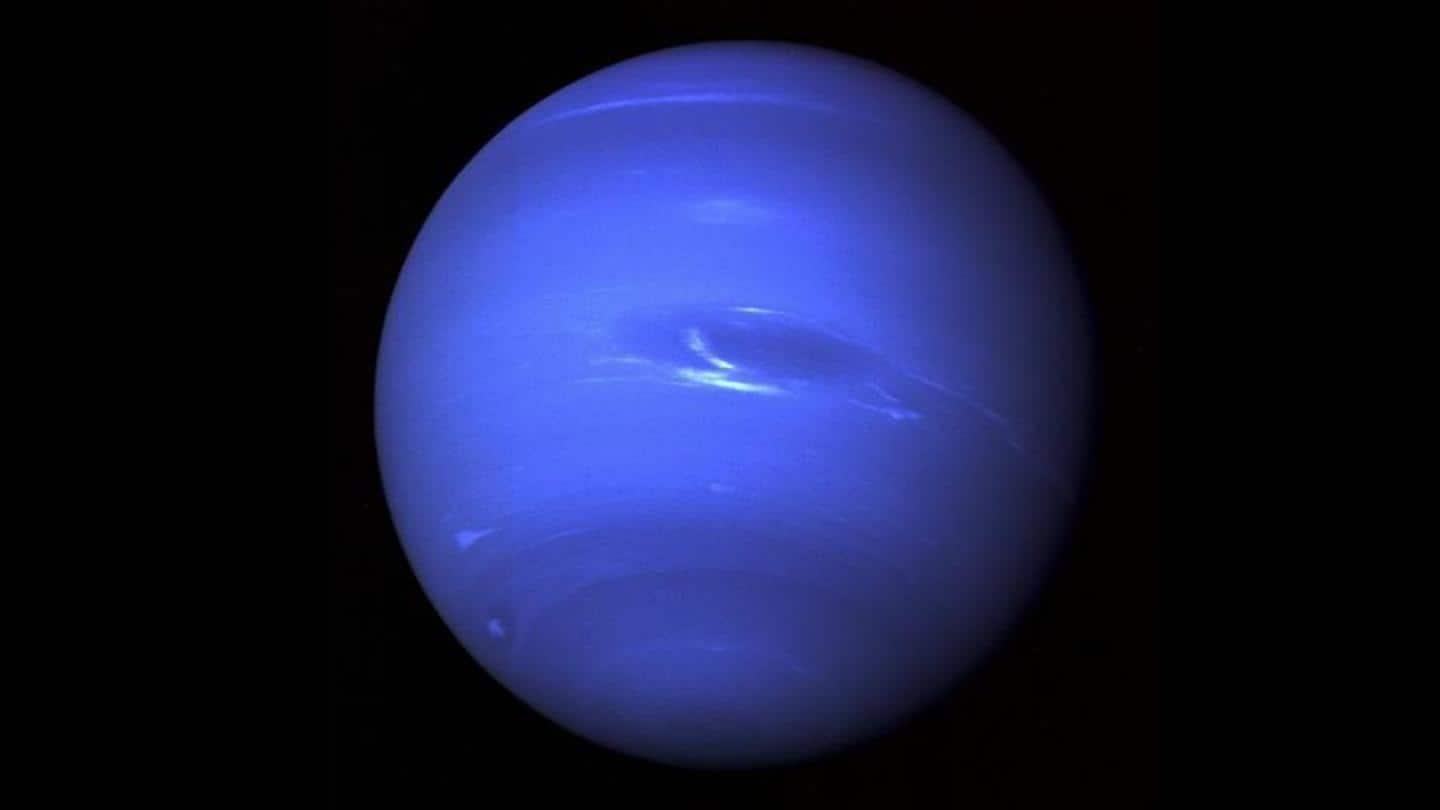
Passing star shifting Neptune's orbit could be solar system's doom
What's the story
What makes a planet influential? In Neptune's case, it is its ability to be the cause of our solar system's doom.
According to a study, if a neighboring star flew too close to our solar system and moved Neptune's orbit by just 0.1%, it can wreck the entire solar system.
The research was done by Garett Brown and Hanno Rein of University of Toronto.
Context
Why does this story matter?
When we think of Neptune, what usually comes to our mind is the large, obscure, ice giant that looks a lot like Uranus.
However, simulations run by scientists have found that a change in Neptune's distance from the sun, even a minute one, will be chaotic.
There is room for optimism though. Out of 3,000 simulations, 960 resulted in insignificant changes.
Not unique
There are over 200 billion stars in the universe
As much as we would love our sun to be unique, that's not the case. Our sun is just one among around 200 billion stars in the Milky Way.
If you argue that the sun is unique because of the planets orbiting around it, be ready to be disappointed. Astronomers have discovered over 3,200 stars with plants around them in our galaxy.
Vulnerable
What makes Neptune so special?
Neptune is the farthest planet from the sun. In fact, it is the only planet not visible to the naked eye.
Being the farthest makes Neptune vulnerable to outside interference. Hypothetically, if our solar system encounters a star, Neptune would be the first to know.
If the star were to pull Neptune out of its orbit, the snowball effect could cause major instability.
Chaos
Gravitational pull of another star can make solar system unstable
If a star flying past nudges Neptune out of its orbit even by 0.1%, the gravitational pull of the star will be felt to the core of the sun.
The stability of the entire solar system will be wrecked as every planet moves and shifts orbit.
Interestingly, the star doesn't even have to be as large as the sun to cause this chaos.
Information
Solar system's end due to a star won't be swift
The demise of the solar system due to a star that flew close will not be swift. It could stretch out over millions or billions of years, for all we know.